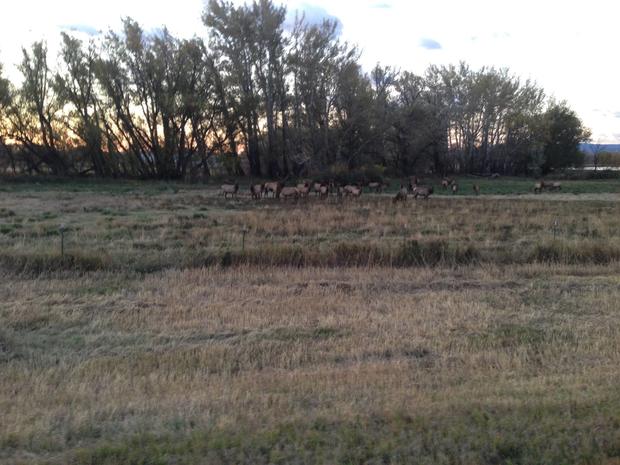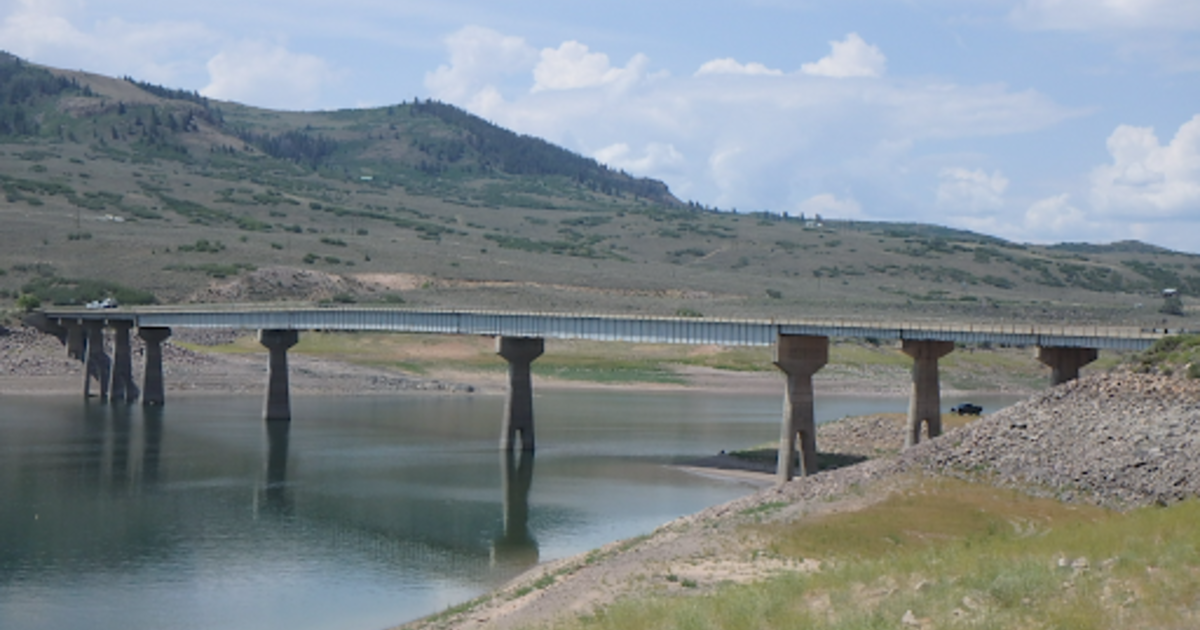Boulder County Mulls Hunting As Elk Management Tool
BOULDER, Colo. (CBS4) - Citizens, county officials, and state wildlife managers gathered in the Boulder County Courthouse Thursday night to discuss a growing elk issue.
It has become clear to Boulder County Parks & Open Space, as well as Colorado Parks & Wildlife, that a herd of stationary elk on Rabbit Mountain is causing damage to the unique ecosystem. Multiple species of concern call the mountain home -- including snakes, birds, and plants -- but the habitat is quickly being degraded by the large number of elk taking up permanent residence.
Elk are supposed to migrate for the different seasons, but this herd of 230 individuals has been lured into year-round residence by nearby cornfields and the safe haven that is Rabbit Mountain. While hunting is allowed in surrounding areas of Boulder County, a mining operation is taking place south of the land plot, and construction of a reservoir is set to begin north of the property, the elk are safe in the bubble of Rabbit Mountain.
This appealing haven has enticed the herd to stay put year-round, putting immense, constant pressure on the habitat and causing degradation. The small plot of land is not intended to support that many elk, and it's becoming apparent. Mountain Mahogany growth is being stunted, trails permanently indented, and earth eroded. The health of the ecosystem as a whole is at risk due to pressure from the non-migratory elk.
So the discussion of what to do was opened up Thursday night. Officials from CPW, Parks & Open Space, and Rocky Mountain National Park presented possible solutions for the hyper-local issue of Rabbit Mountain. The fix will likely consist of multiple tools, one of which could be hunting.
According to county parks officials, hazing the animals does not have a long-term effect. Though the elk are shy of people, hazing efforts only push the elk away for a few days at a time. They return to the trampled habitat in two to three days.
Another idea that came up was fencing around crop fields. This is an expensive method requiring heavy maintenance, and ends up excluding other species beyond elk. One member of the public suggested increasing the number of trails for humans on Rabbit Mountain, and reasoned that since the elk are skittish of people the activity would naturally drive them away.
Culling, or lethal hazing, could be a successful option, but nearly everyone at the meeting had the mindset that if culling is considered, hunting should be too. It would be a much better use of resources considering the money for hunting permits goes back towards conservation, an input alternate to the output needed for paying officials to kill the animals. It's also much more satisfying for everyone involved, as hunters gain access and officials aren't burdened with killing animals for no gain. Several hunters were at the meeting and noted that they are the first people to support conservation efforts.
The Rabbit Mountain Open Space property is roughly 2700 acres large, and is adjacent to many farmers' properties. While 230 elk currently live on this small plot, the cows are about to drop 80 calves, significantly increasing the population.
One man named Skip who lives beside the county's Rabbit Mountain property spoke at the meeting and discussed his attempts to have good neighbors. He grows hay and raises cows, but the elk are eating him "out of hearth and home." CPW has provided hazing materials such as rubber bullets and firecrackers, but he can only do so much while they're on his property before they run to the safety of county land.
"Them sons of guns can read where the Boulder County line is I swear," Skip said at the meeting.
Though the problem is moving the herd, not necessarily reducing its numbers, hunting — a physical danger — would likely be most effective at scaring the elk away from the 'safe zone' of Rabbit Mountain, thereby encouraging them to migrate.
But the word 'hunting' in Boulder County comes with huge controversy. One commissioner was particularly concerned about the impending community uproar if hunting were to be the solution. CPW officials urged the board to keep the larger picture in mind: the health of a very special ecosystem.
In order to successfully manage it, the large elk herd must migrate to relieve pressure on the habitat. How to do that is the challenge.
This was the initial informational meeting to open a discussion for solutions. The board will revisit the issue in next month's meeting.




